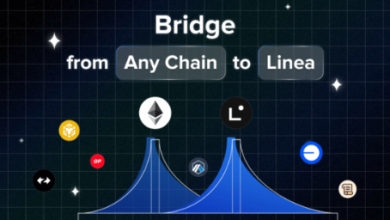Using Talent Assessment Software for Optimal Hiring Results

In today’s competitive business landscape, hiring the right talent is crucial for the success and growth of any organization. The traditional methods of recruitment often fall short in identifying the best candidates for a specific role, leading to increased turnover and decreased productivity. To address these challenges, many companies are turning to technology-driven solutions, with talent assessment software emerging as a game-changer in the hiring process.
This comprehensive article explores the significance of leveraging talent assessment software for optimal hiring results. We’ll delve into the key features, benefits, challenges, and best practices associated with implementing such software in the recruitment process.
The Evolution of Talent Assessment
Historically, hiring decisions were primarily based on resumes, interviews, and gut instincts. However, these methods proved to be subjective, prone to biases, and often failed to provide a comprehensive understanding of a candidate’s abilities. With the advent of technology, talent assessment has undergone a significant transformation.
Talent assessment software leverages advanced algorithms, artificial intelligence (AI), and data analytics to evaluate candidates objectively. These tools are designed to measure various aspects such as cognitive abilities, personality traits, skills, and cultural fit. The aim is to create a more holistic and accurate profile of candidates, enabling organizations to make informed decisions about who to hire.
Key Features of Talent Assessment Software
-
Cognitive Assessments
Talent assessment software often includes cognitive tests to evaluate a candidate’s problem-solving skills, critical thinking abilities, and decision-making processes. These assessments go beyond traditional measures and provide a deeper insight into an individual’s intellectual capabilities.
-
Personality Assessments
Understanding a candidate’s personality is crucial for determining their fit within the organizational culture. Talent assessment software incorporates personality assessments that help identify traits such as teamwork, adaptability, leadership potential, and emotional intelligence.
-
Skills Testing
To ensure candidates possess the necessary skills for a specific role, talent assessment software includes skills testing modules. These assessments may include technical skills, soft skills, and industry-specific knowledge evaluations.
-
Situational Judgment Tests
Simulating real-world scenarios, situational judgment tests assess a candidate’s ability to make decisions in challenging situations. These tests are designed to gauge how well an individual can apply their knowledge and skills to practical, work-related scenarios.
-
Video Interviews and AI-Based Analysis
Some talent assessment software incorporates video interviewing capabilities. AI algorithms analyze facial expressions, tone of voice, and other non-verbal cues to provide additional insights into a candidate’s communication skills and emotional intelligence.
-
Data Analytics and Reporting
The software generates detailed analytics and reports based on the assessments. These insights help recruiters and hiring managers make data-driven decisions, identify trends, and continuously improve the hiring process.
Benefits of Talent Assessment Software
-
Improved Hiring Accuracy
Talent assessment software minimizes subjective biases and provides an objective evaluation of candidates. This leads to more accurate hiring decisions, reducing the likelihood of hiring candidates who may not be the right fit for the role.
-
Time and Cost Savings
Automating the assessment process significantly reduces the time and resources required for screening and shortlisting candidates. This efficiency translates into cost savings and allows recruiters to focus on strategic aspects of the hiring process.
-
Enhanced Candidate Experience
Talent assessment software can streamline and simplify the application and assessment process for candidates. This contributes to a positive candidate experience, reflecting well on the employer’s brand and increasing the likelihood of attracting top talent.
-
Scalability and Consistency
With traditional methods, maintaining consistency in the hiring process becomes challenging as the volume of applicants increases. Talent assessment software ensures a standardized evaluation process regardless of the number of candidates, promoting fairness and equity.
-
Identification of Hidden Talents
Traditional hiring methods may overlook candidates with unconventional backgrounds or experiences. Talent assessment software, by focusing on objective criteria, helps identify individuals with unique skills and perspectives that may contribute significantly to the organization.

Challenges in Implementing Talent Assessment Software
While talent assessment software offers significant advantages in the hiring process, organizations must also address challenges such as bias in algorithms, resistance to change, and privacy concerns, underscoring the importance of seamlessly integrating a robust Applicant Tracking System (ATS) to ensure a seamless and secure recruitment process. A well-integrated ATS can streamline the hiring workflow, manage candidate data efficiently, and mitigate potential biases, contributing to a more seamless and effective talent acquisition strategy.
-
Bias in Algorithms
Despite the aim of objectivity, talent assessment software may inherit biases present in the data used to train the algorithms. This can result in discriminatory outcomes, reinforcing existing inequalities in the workforce.
-
Overreliance on Technology
Relying solely on technology can lead to a lack of human touch in the hiring process. Building relationships and understanding intangible qualities such as cultural fit may be neglected if technology becomes the sole decision-maker.
-
Resistance to Change
Introducing new technology can face resistance from existing staff who are accustomed to traditional hiring methods. Proper training and communication are essential to ensure a smooth transition.
-
Privacy Concerns
Collecting and analyzing data, especially sensitive information, raises privacy concerns. Organizations must prioritize data security and comply with regulations to maintain candidate trust.
Conclusion
Leveraging talent assessment software is no longer a choice but a necessity for organizations aiming to build high-performing teams in today’s dynamic business environment. The benefits of improved accuracy, time savings, and enhanced candidate experience make these tools indispensable in the modern recruitment landscape.
While challenges exist, adopting best practices, staying abreast of future trends and integrating application tracking system can help organizations maximize the potential of talent assessment software. As technology continues to evolve, so too will the ways in which we identify, evaluate, and select the best talent for our organizations. By embracing these advancements, companies can ensure they remain competitive and resilient in the face of an ever-changing workforce landscape.





